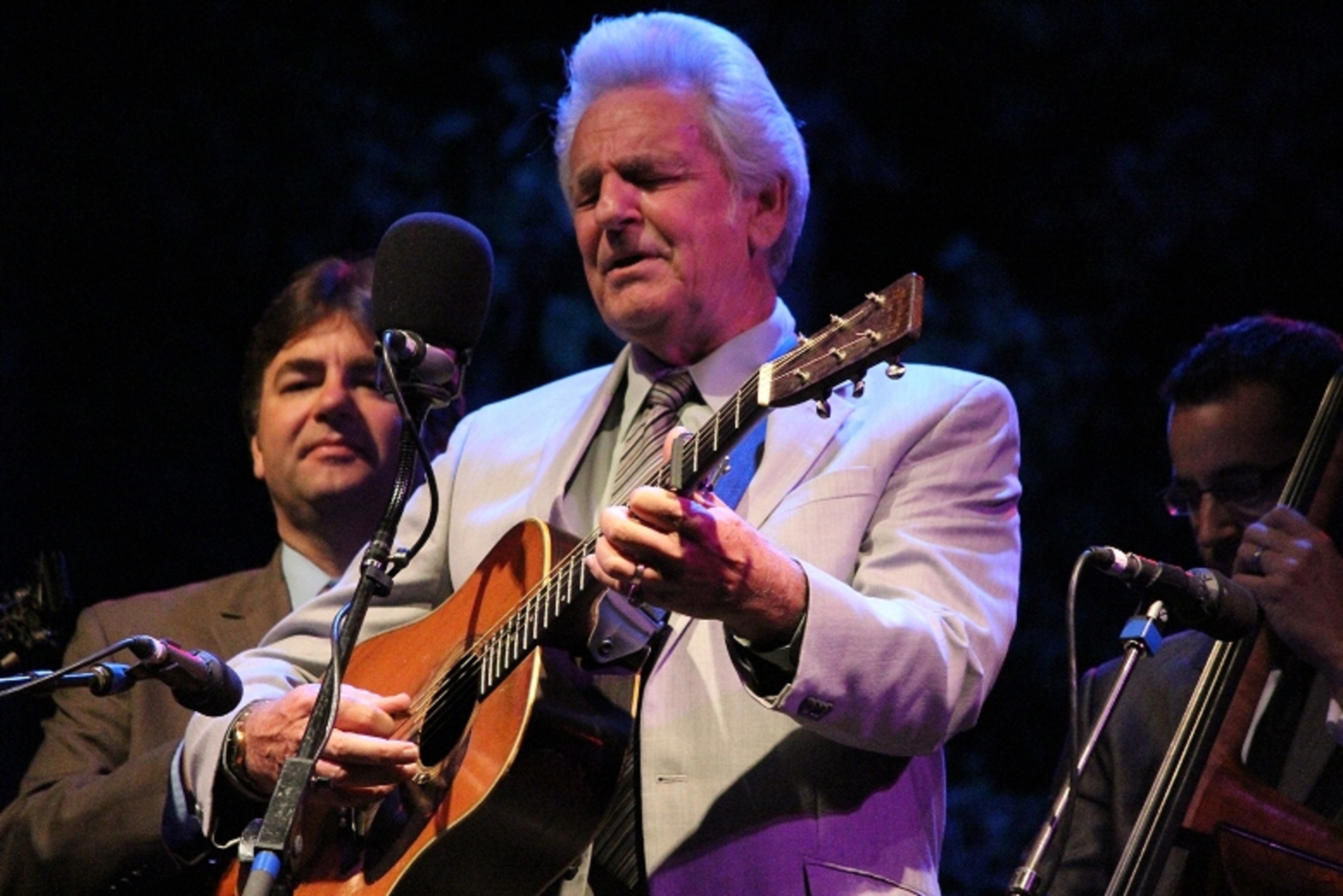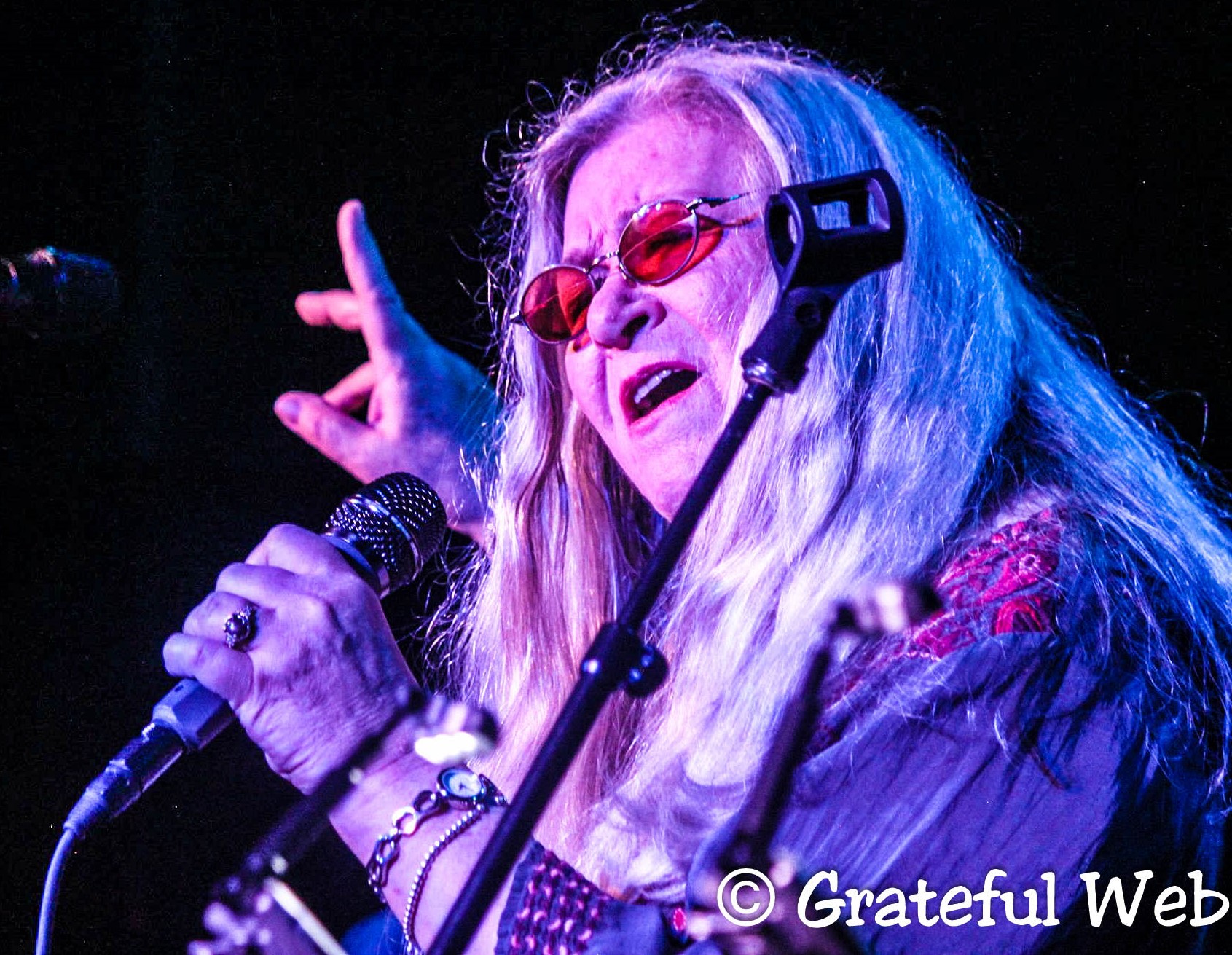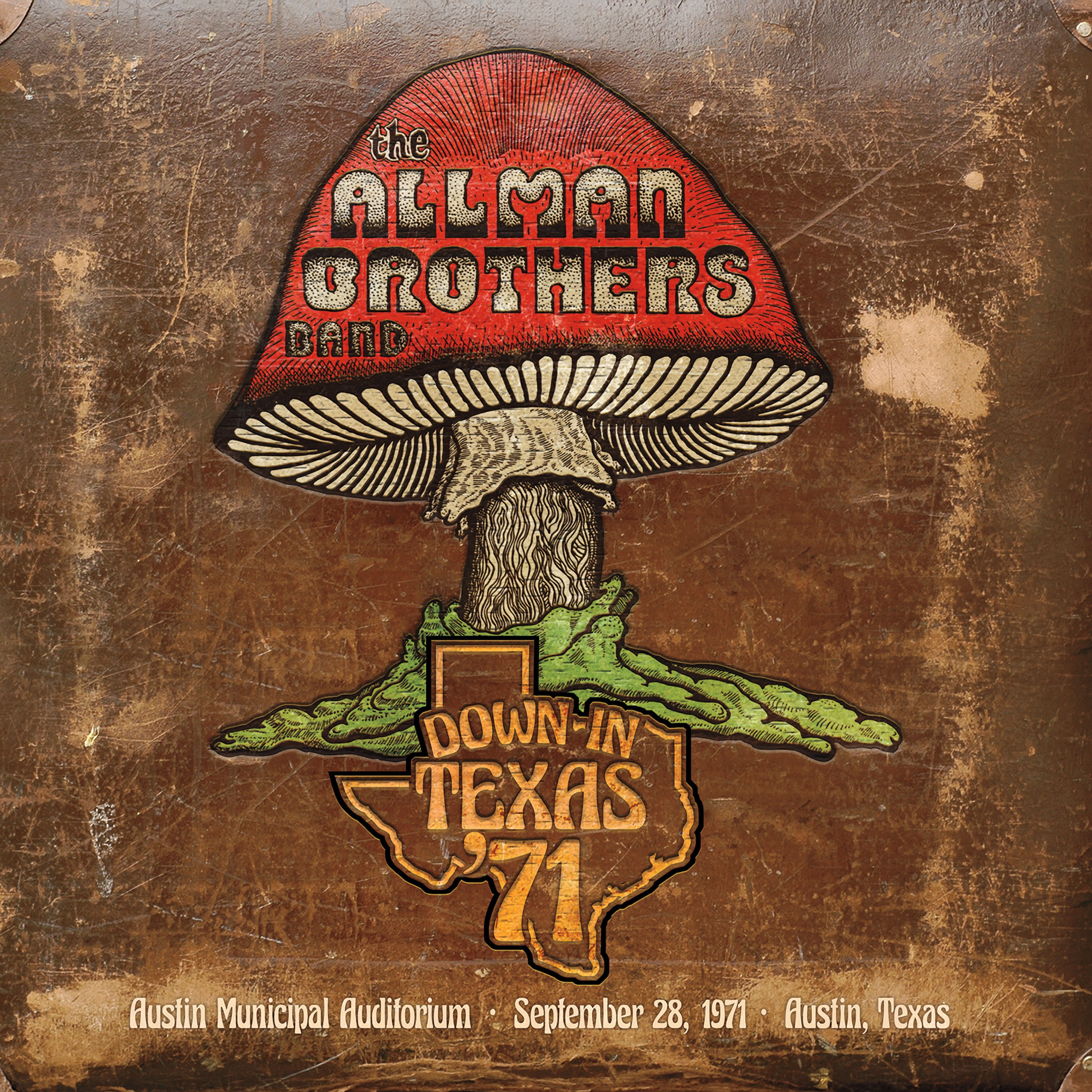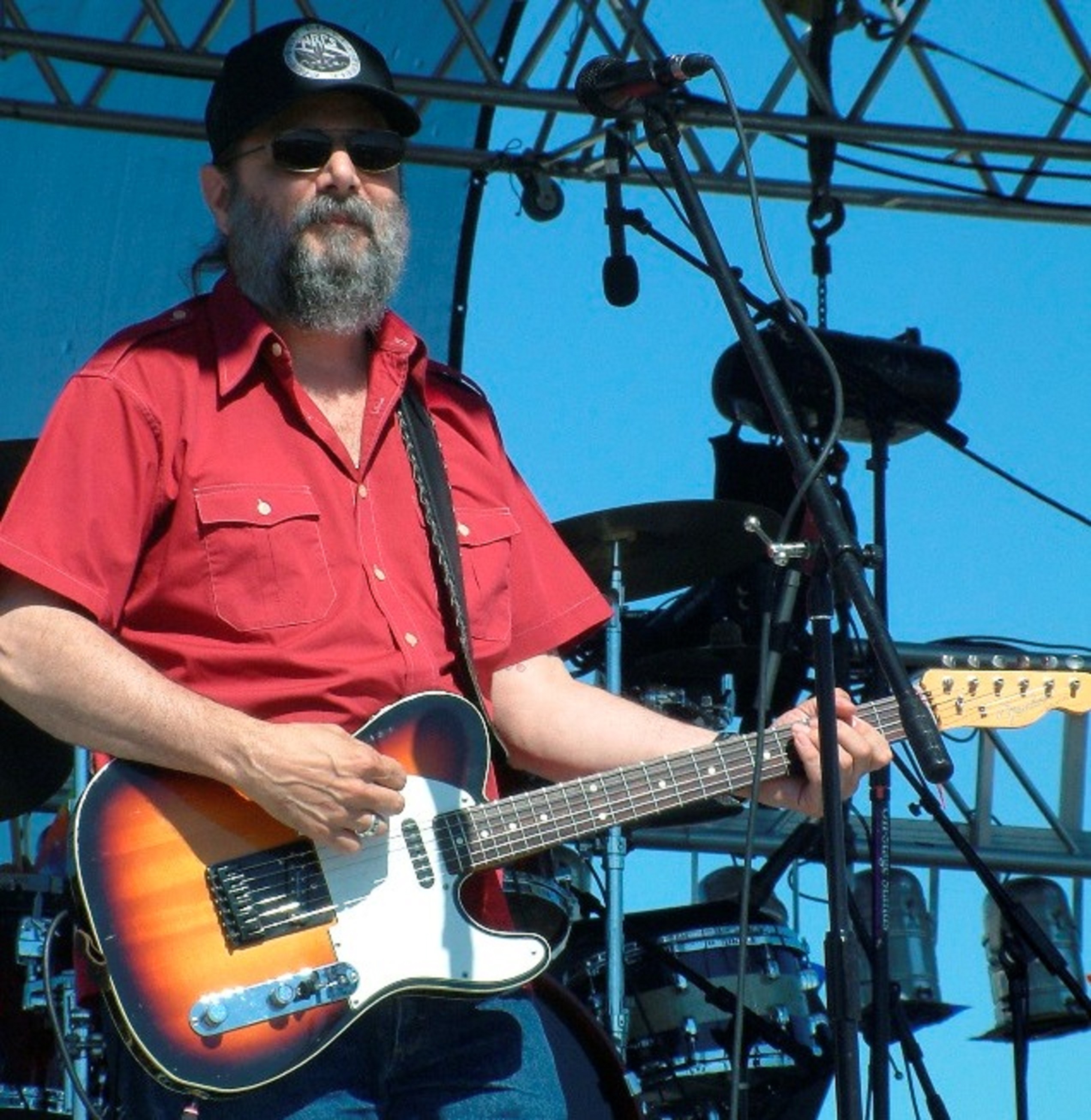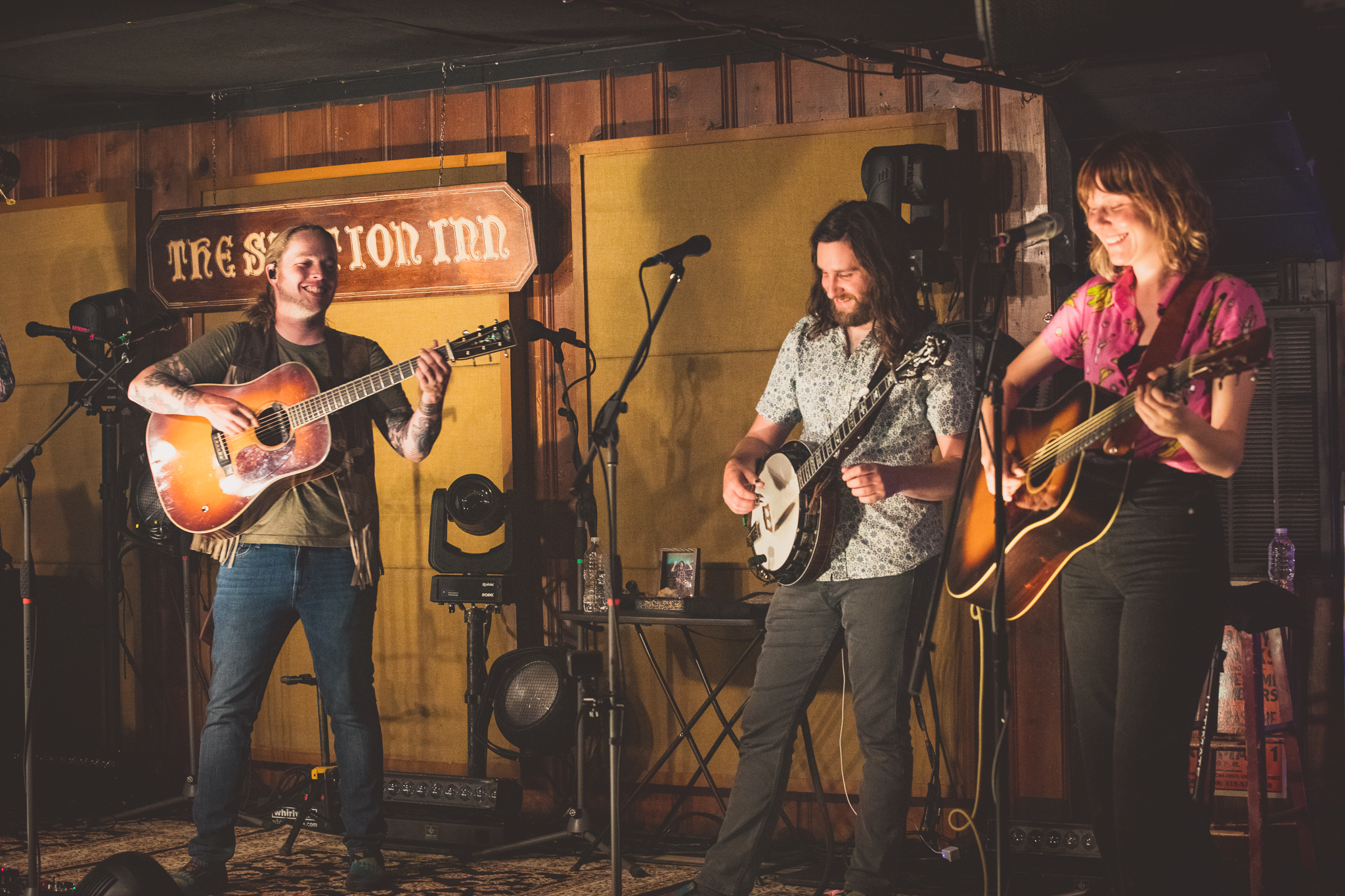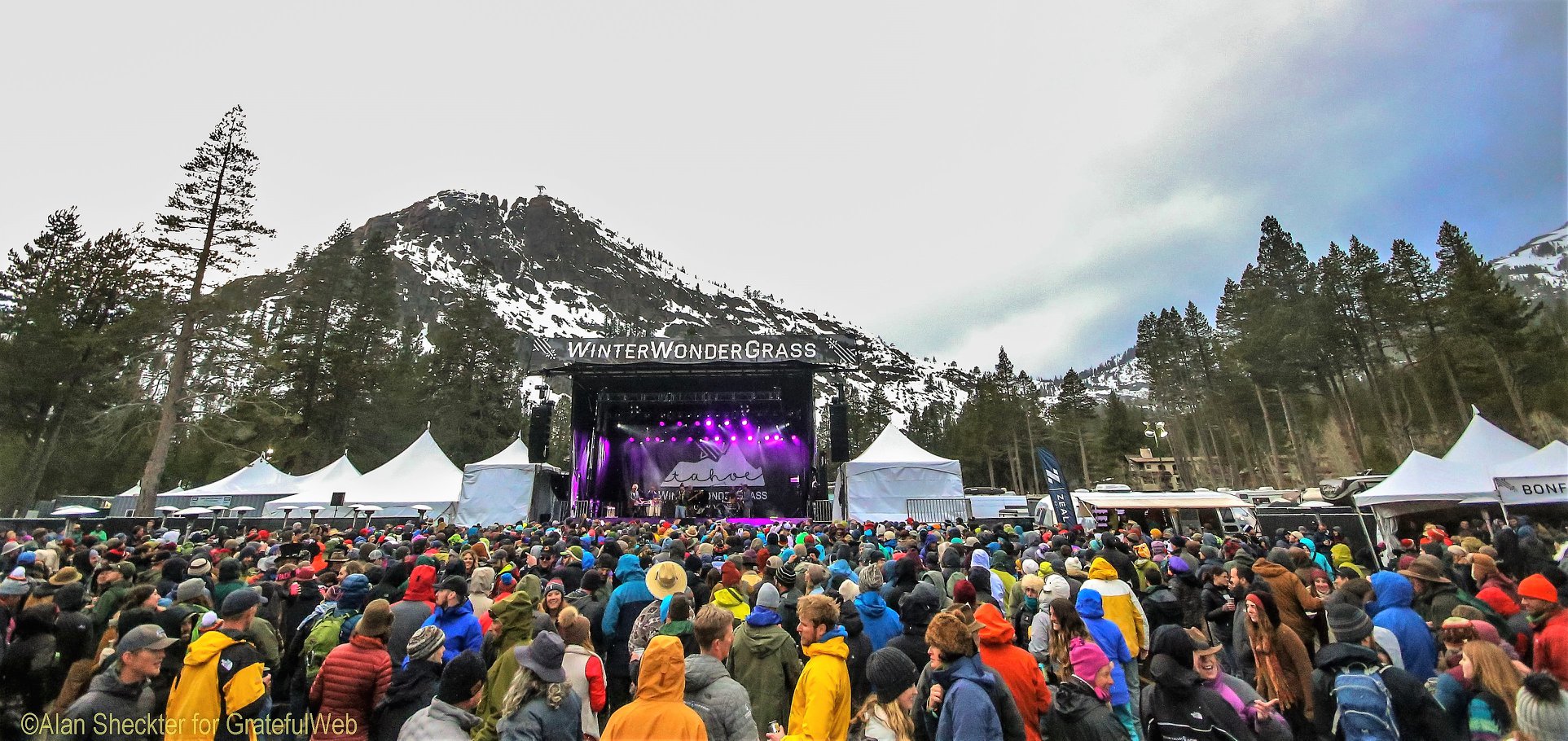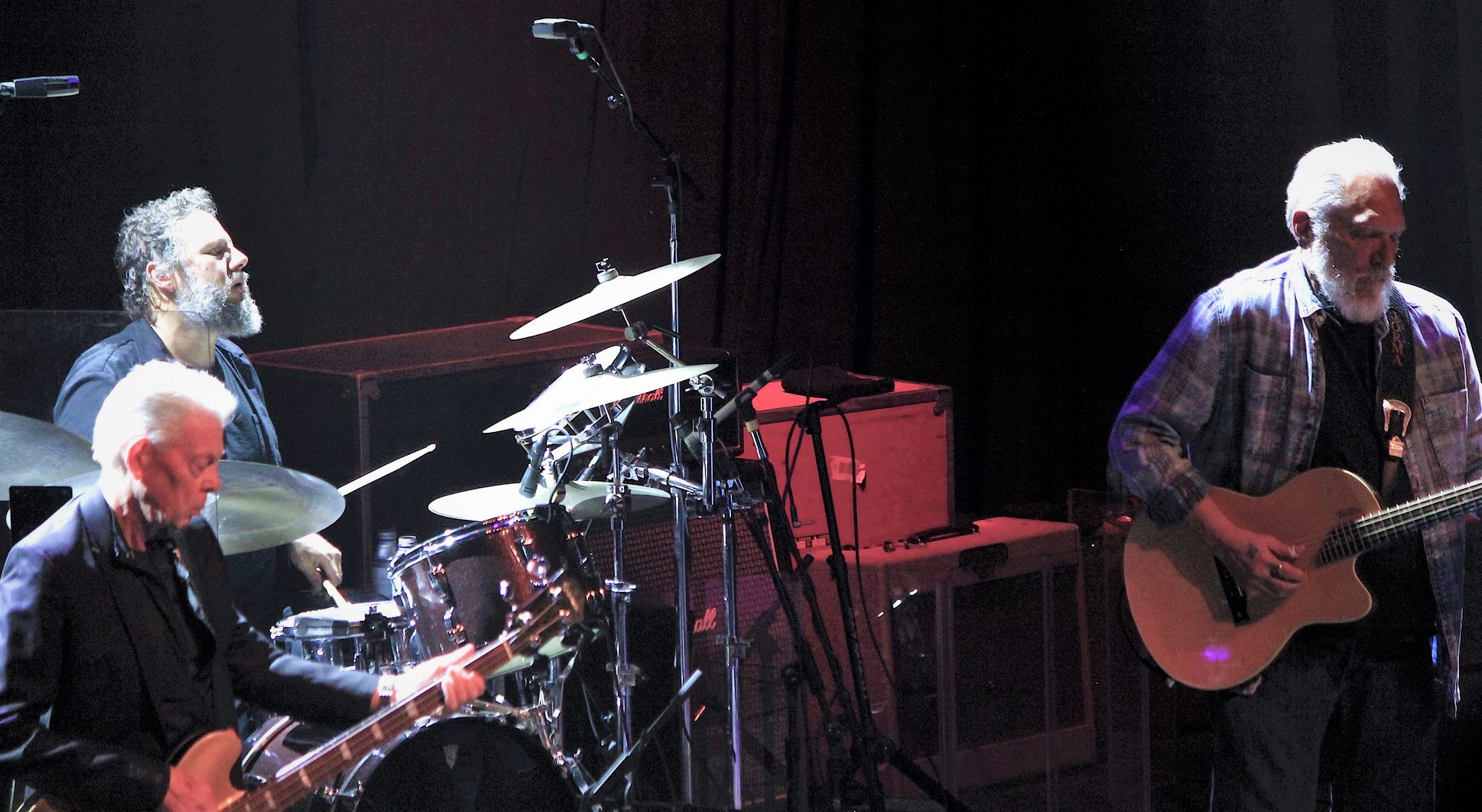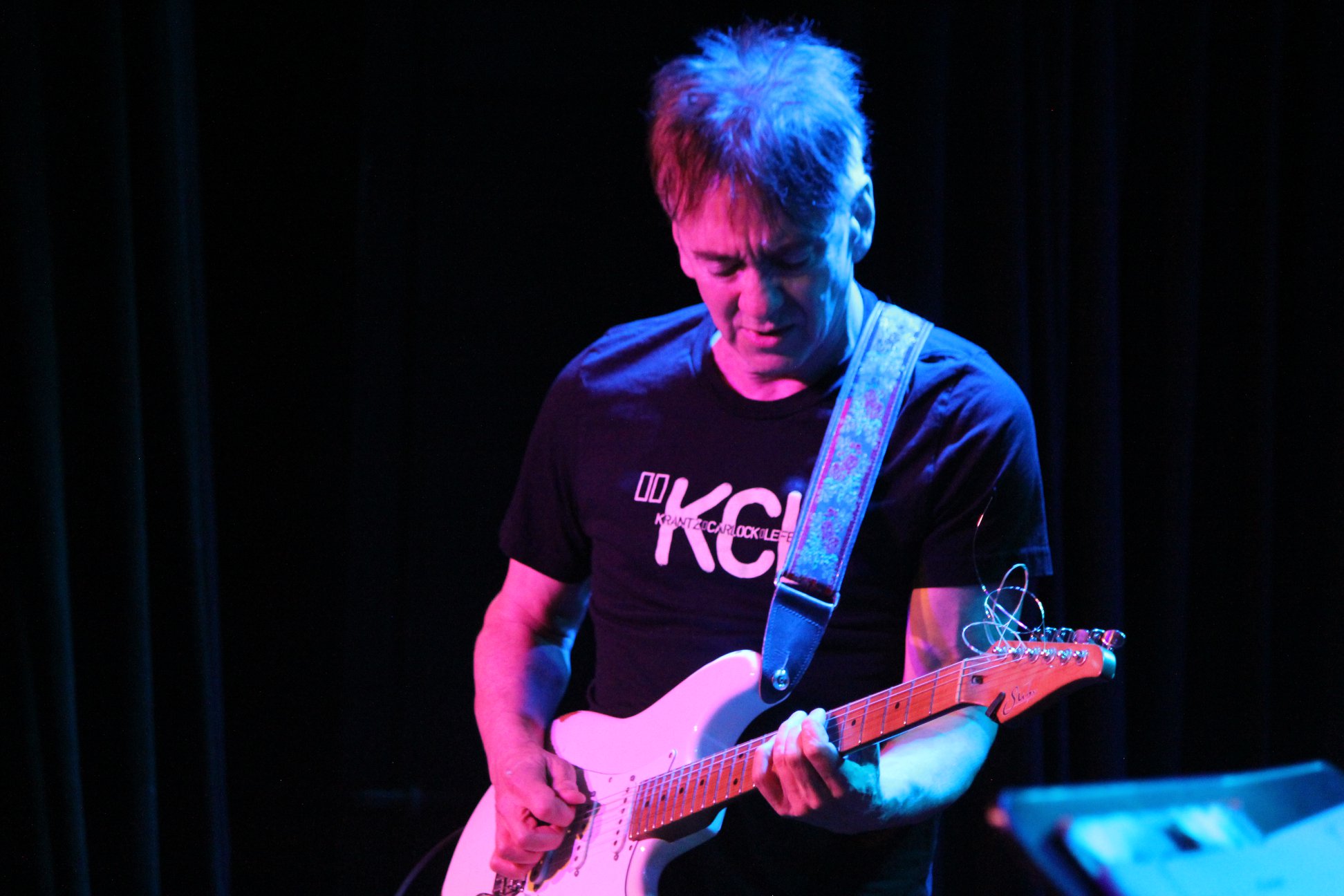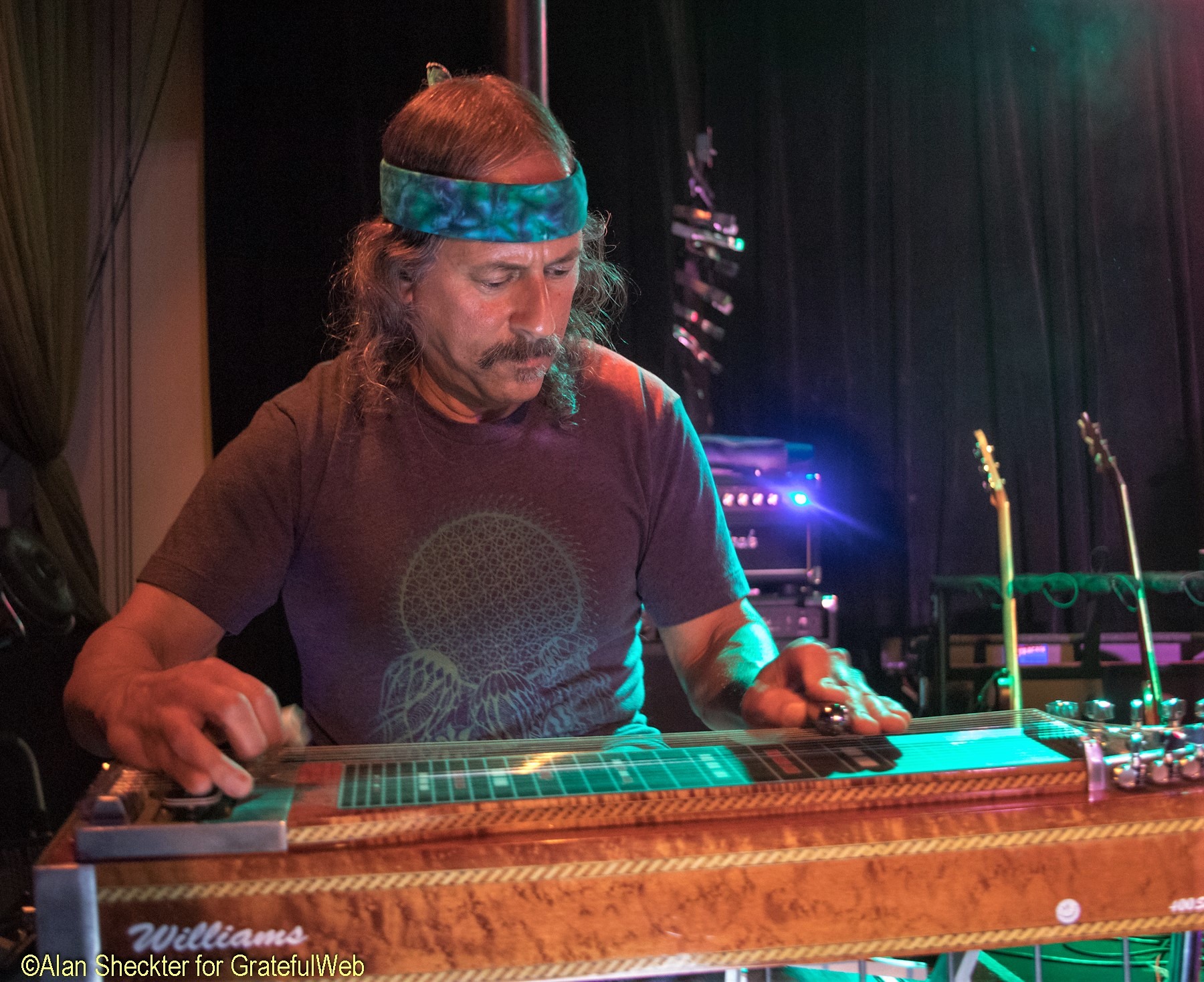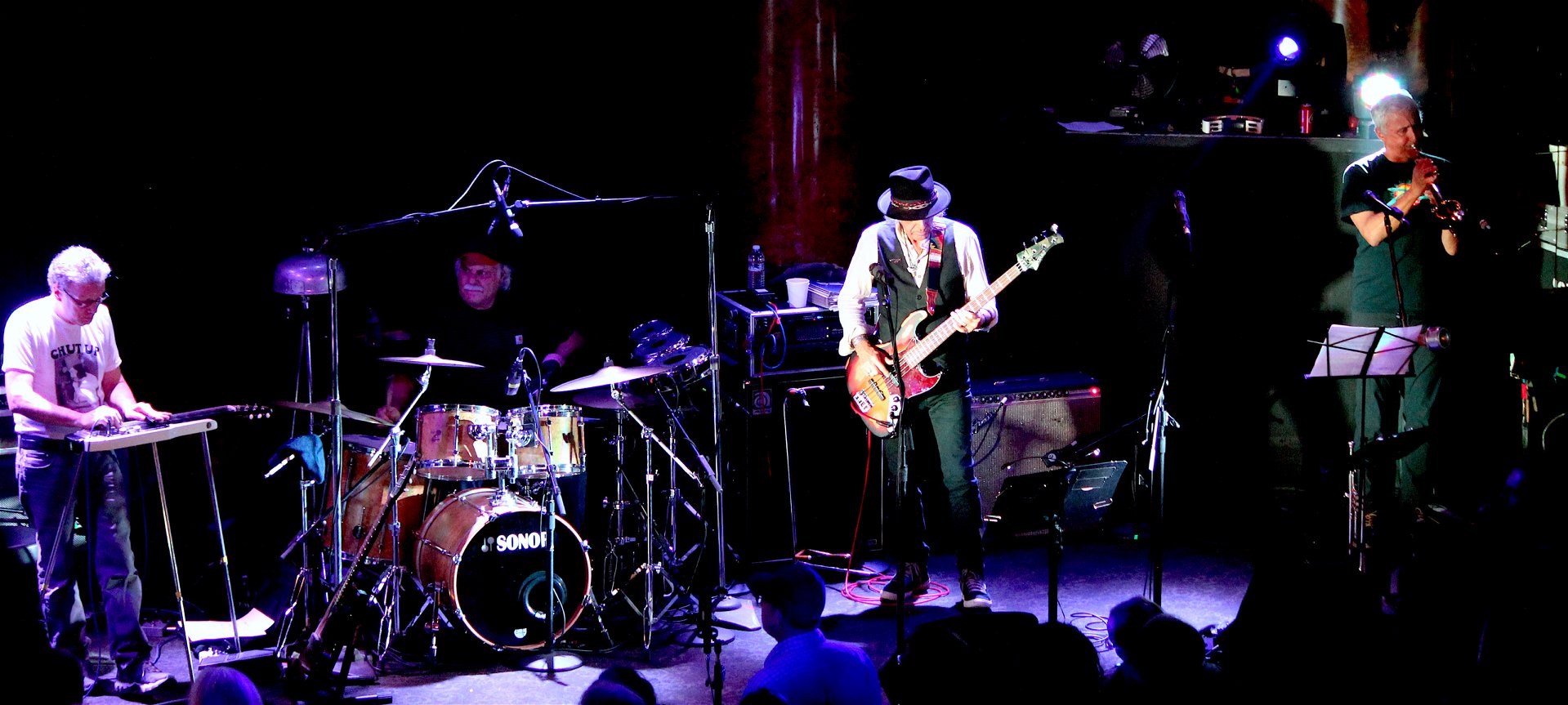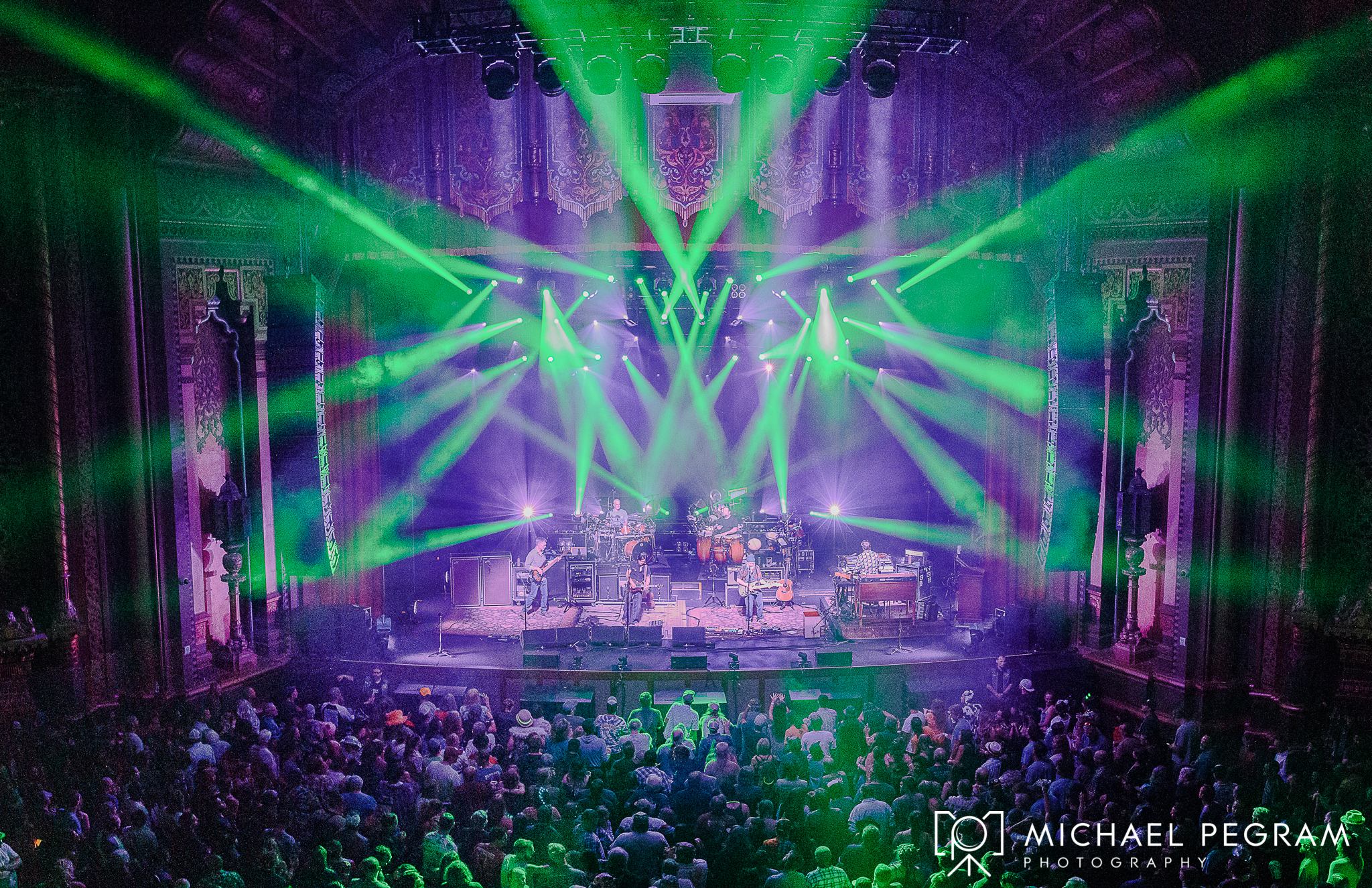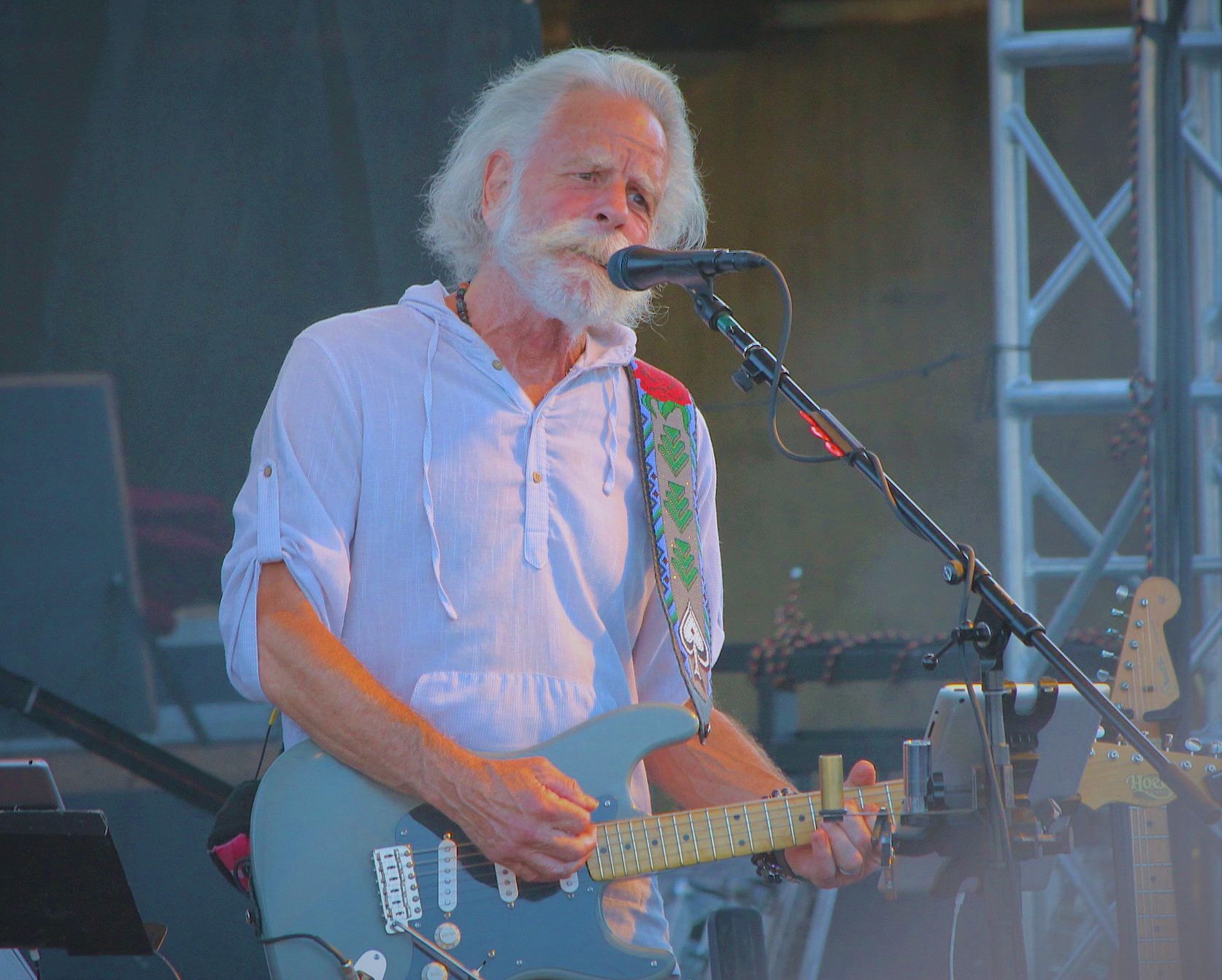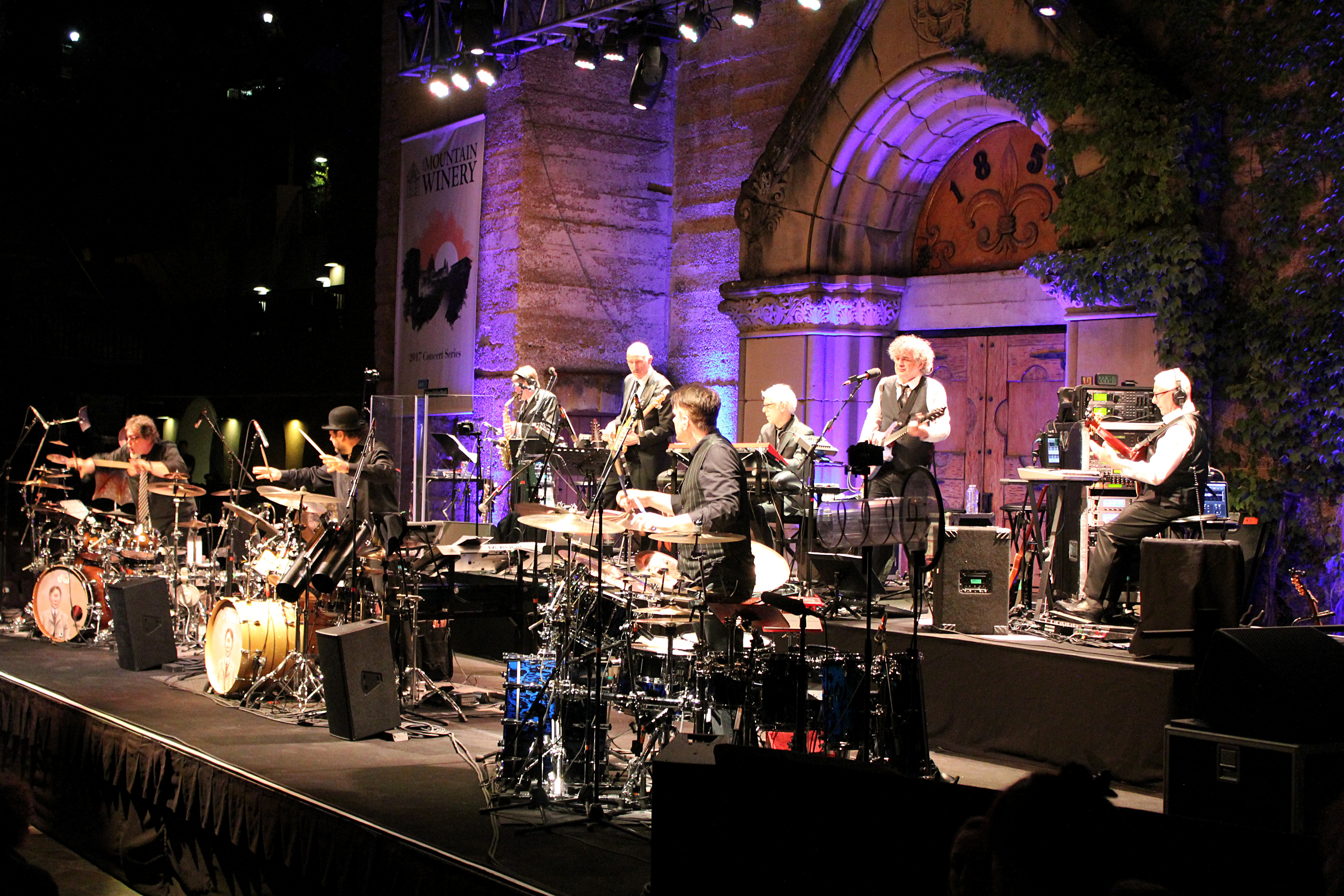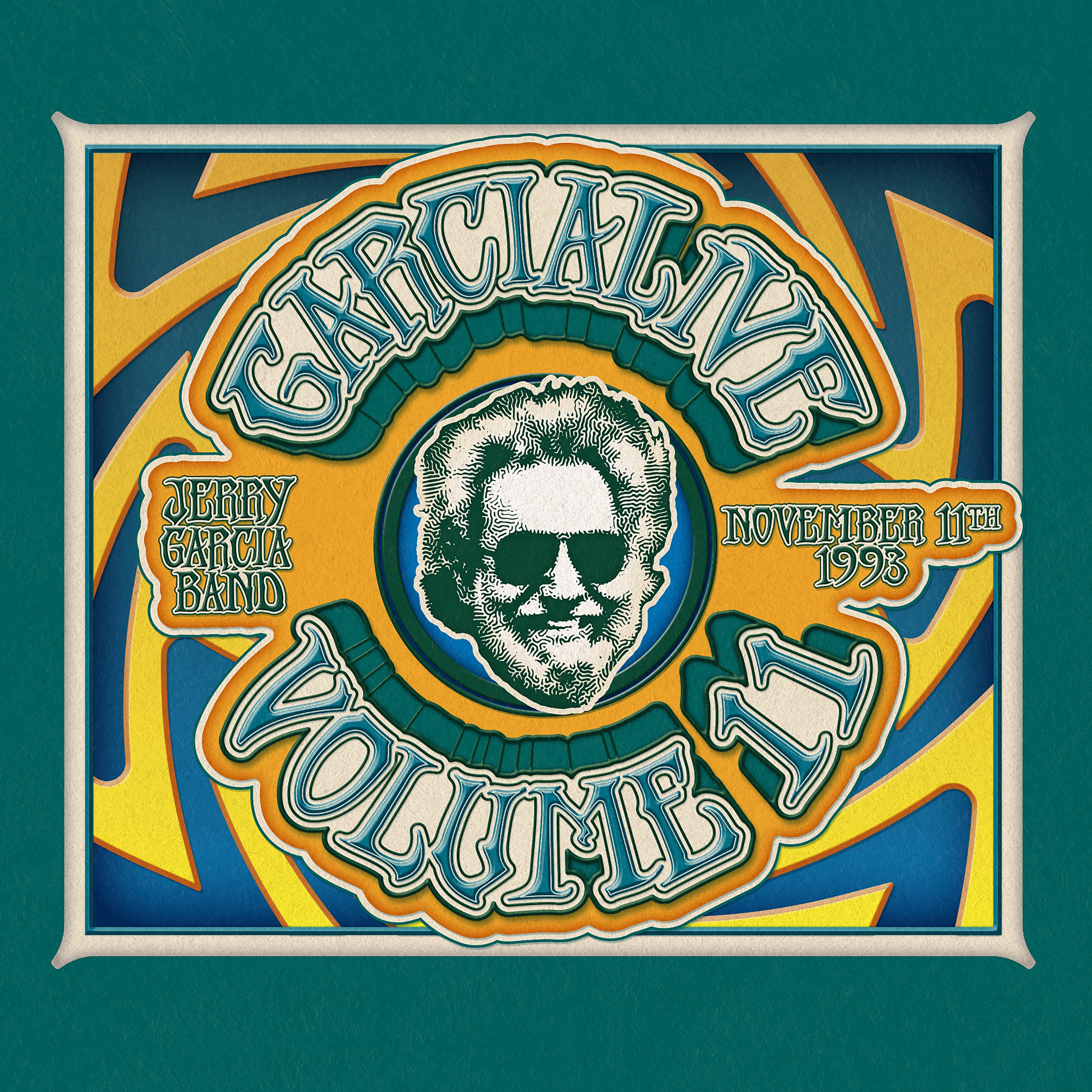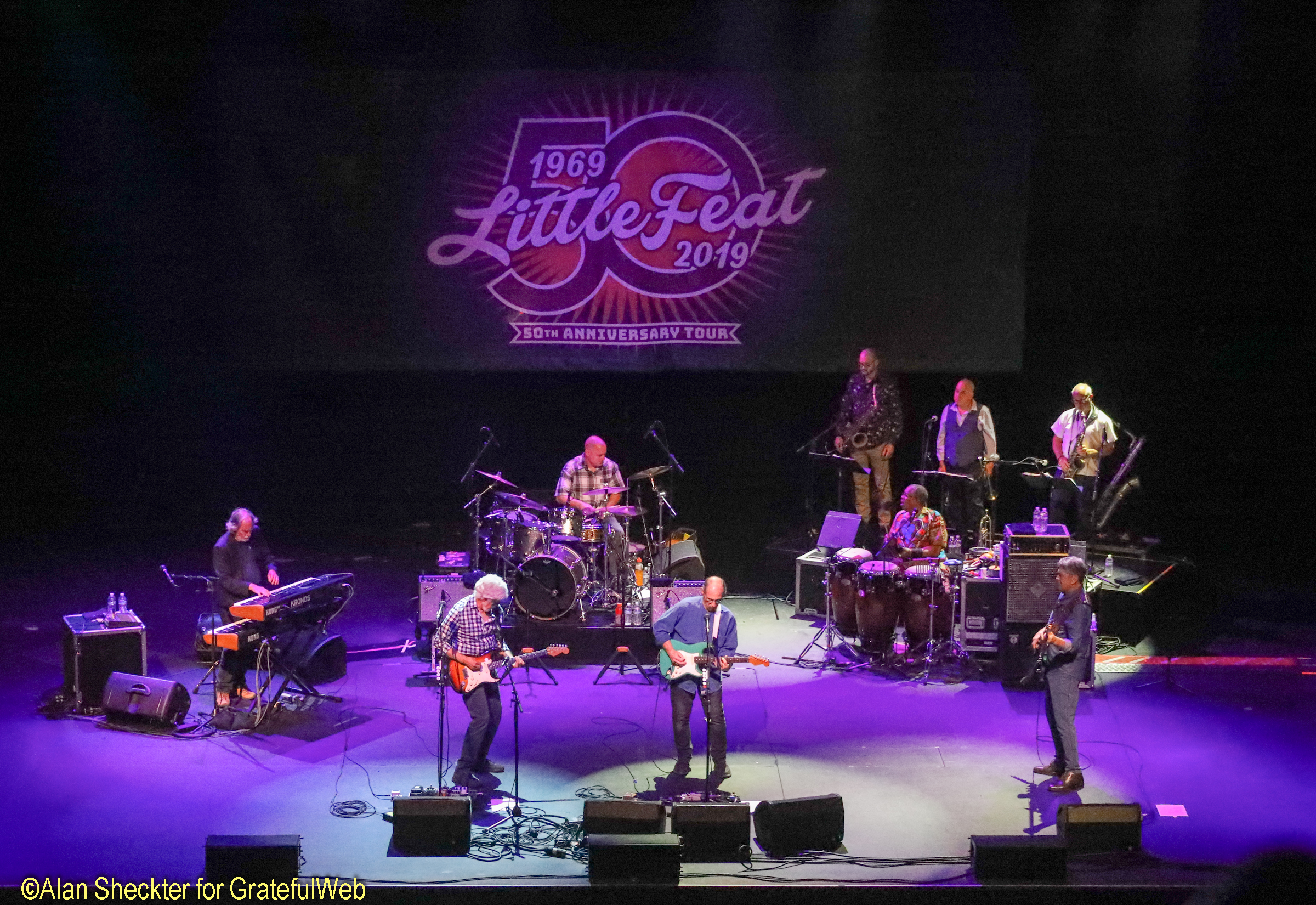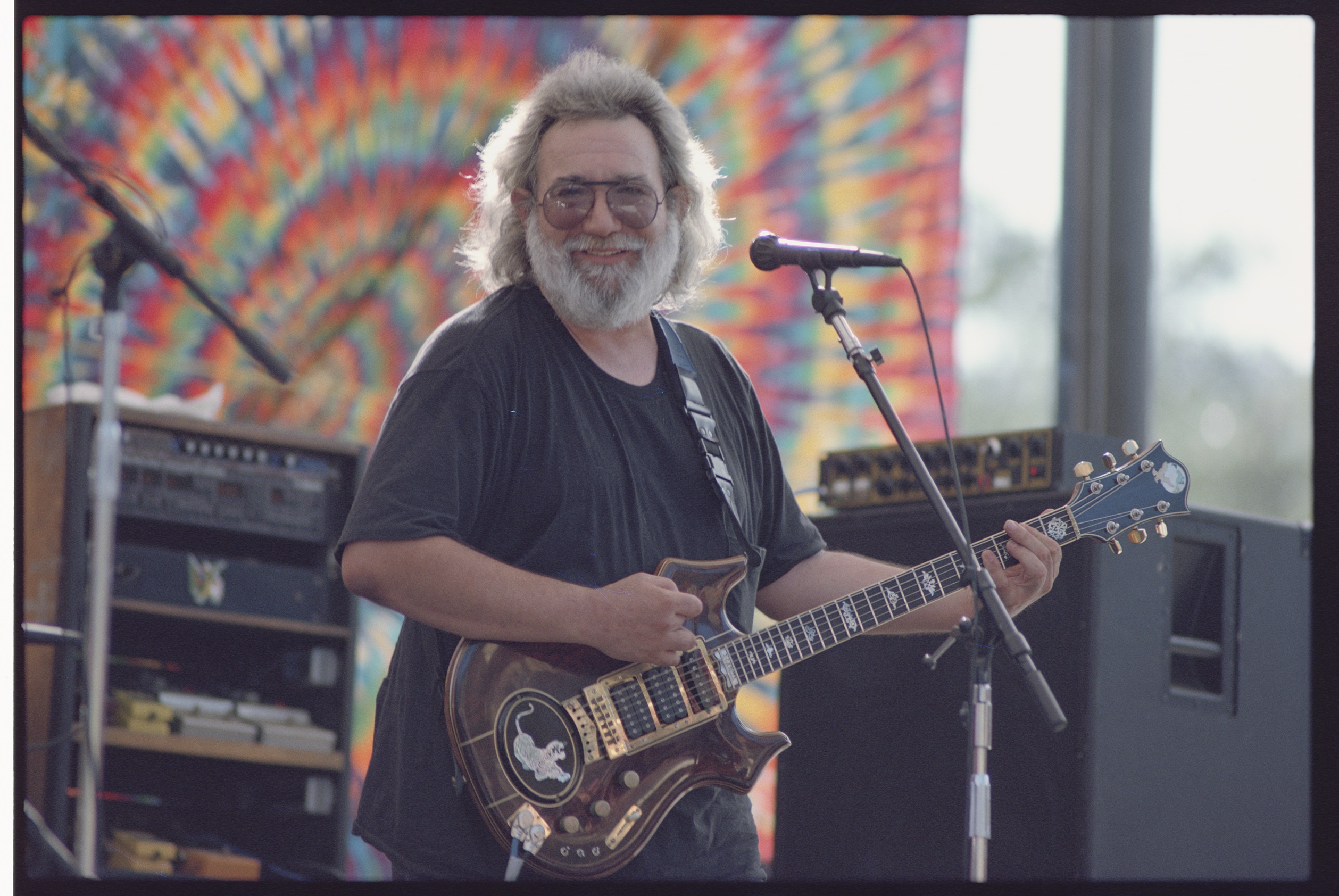The Grateful Web just had an amazing opportunity to speak to bluegrass legend, Del McCoury. Del talked about his time in the Bill Monroe Bluegrass Boys, the upcoming DelFest in Cumberland, MD, what Del thinks about the current state of the bluegrass scene and things both he & Bill Monroe learned from some of the early jazz musicians.
GW: This is Dylan Muhlberg on behalf of Grateful Web here with the legendary Mr. Del McCoury, who is universally acknowledged in the bluegrass community as one of the genre’s great performers. He has played consistently for decades with his sons and nephews as his band. It’s a pleasure to have you with us.
Del: How you doing Dylan?
GW: Great, thank you so much for joining us. Let’s talk a bit about your history for a moment. Your breakthrough was in 1963 in with Bill Monroe’s Bluegrass Boys as lead vocalist and rhythm guitar. Would you share some thoughts about your time with the Monroe Band?
Del: I was only there a year I guess, but I learned a lot from him. Actually, he wasn’t that great of a teacher, you just kind of learned by his example. It was really about getting onstage and working hard with him. The first time I ever played with him we just tuned up and walked out onstage and I had never played one note with him in my life. That was actually banjo when I started I was a banjo player. He needed a guitar player and a lead singer, and he wanted me to do that. That’s kind of the way it wound it. And it was an exciting time for me. I had never played internationally or even all over the country like I did with Bill Monroe, and I really valued that experience, you know?
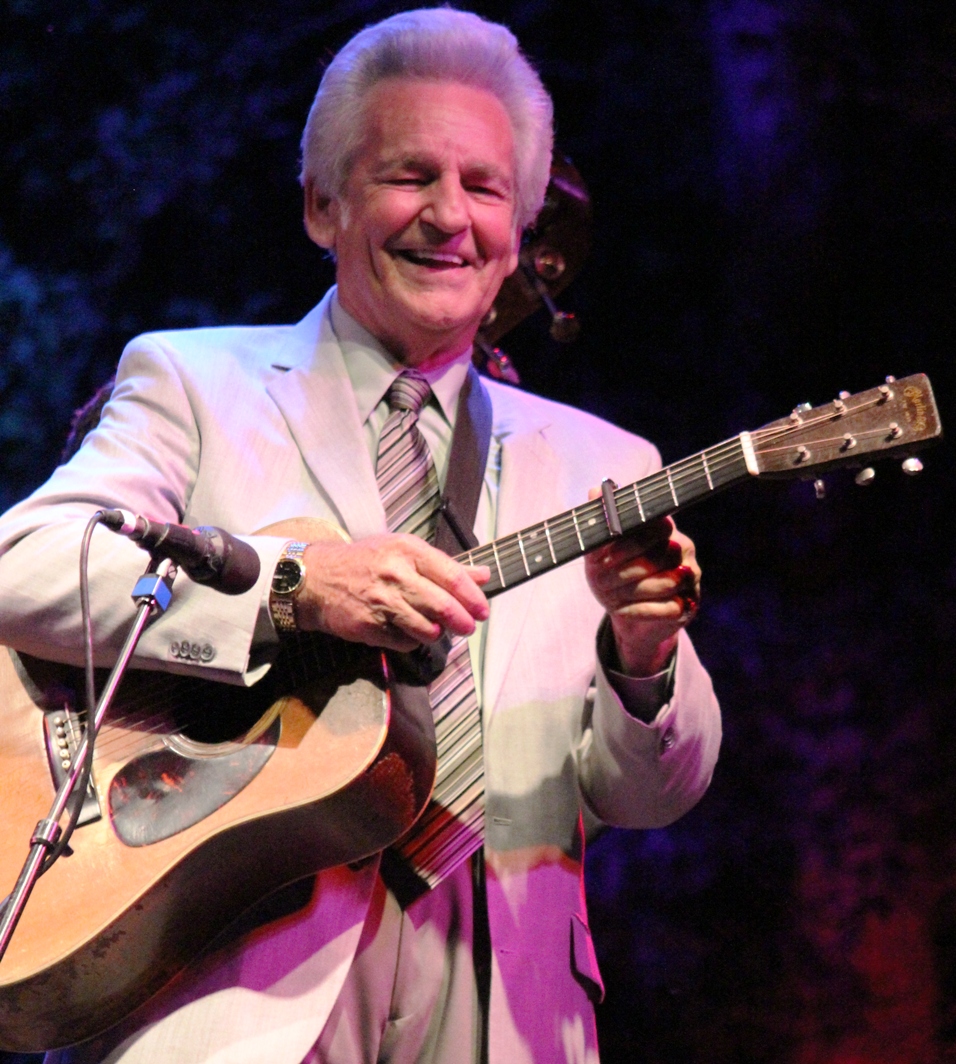
GW: Absolutely. From then on your style has been boundless. Embracing the roots of bluegrass, yet acknowledging the progressions in the genre as well. Could you briefly give your thoughts on the status of the bluegrass scene today, and how that’s affected your playing?
Del: You know the status of bluegrass today is bigger now than it was then. It was kind of a local thing then. Now there are bluegrass musicians in all countries of the world really. The popularity of the music is wider now than it was in those days. It’s really in good shape I think. The music is still the same as when Bill Monroe started the music back in the 40’s. But really nobody can replace that original band. That was such a great thing that we got to hear that. They were on a 50,000 watt clear channel radio station in the Grand Ole’ Opry. They were on a major record label, so we got to hear the best in the beginning (laughs}.
GW: I completely agree, the genre has definitely grown in popularity. Out here in Colorado, I attend the Telluride Bluegrass Festival every year and have the pleasure of watching you and your boys perform and its bigger now than ever.
So since 2008 you have hosted a multi-day festival with your band headlining, fitting called DelFest, with initially drove you to host your own music festival.
Del: We’ll I’ll tell you Dylan, I thought about it through the years. I played the first one which was in Virginia, like in 66’. They ran in 65’ and I didn’t know about it. It was a small thing, I guess. I always thought I would like to have my own festival. Bill Monroe had his own festival starting in 1967 in Beam Blossom, Indiana. And then a lot of performers started having their own festivals, but I knew it was a lot of headache. I was a musician and a singer and I wasn’t all that interested in taking on a bunch of business [laughs]. But my manager, in those days I didn’t really have a manager either. I wrote my own contracts and booked my own shows. Anyways, in the wind-up I got a manager around 2000, and that was the first time I really had a manager. I had booking agents before that. One day my manager asked me, “how would you like to have your festival?” But I said “I don’t like the business part of all that.” He said “Don’t worry about that, I’ll handle all that part,” which was pretty great for me.
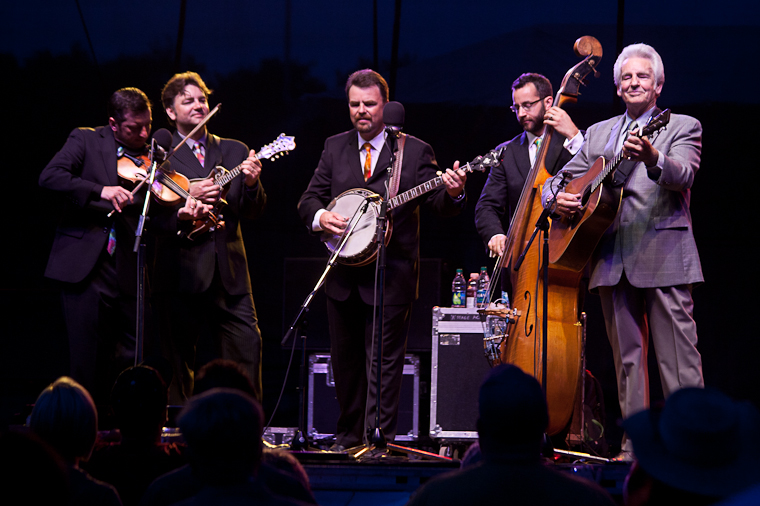
I had played for Roy Carter out there at High Sierra, he’s had a great festival there for over 20 years now. He’s a great guy. My manager called him and said, “I’ll go out east.” We wanted to do it out East, and not in California. Anyways, he flew here and looked all over places that he knew about to have it out here. When he called here he took us to Cumberland, Maryland first. When I saw it, I said, “I don’t want to go any further, I like this place. “He had other locations, but if he took us to more places its gonna get more confusing anyways, because its hard to decide then. I love that location; it was such a beautiful place. We just decided to start it right there in Cumberland.
GW: There’s certainly something about the bluegrass scene that fosters the festival environment. When I was looking at past lineups for your festival, and this year, its quite obvious that you host the hottest talents in the scene, with many different incarnations and generations of bluegrass represented. How do you go about the process of assembling such a fantastic lineup each year?
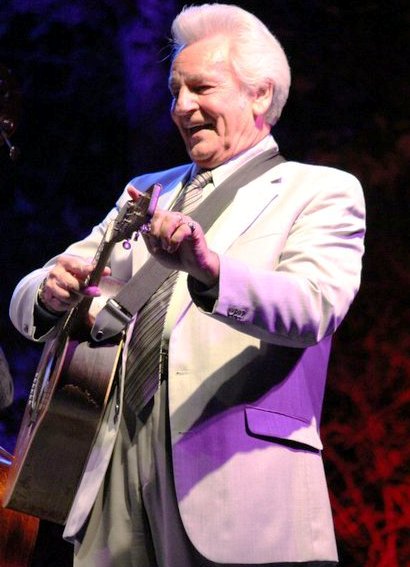
Del: [Laughs], Well, you know, we actually leave the booking up to Roy Carter, out there California. But we all have suggestions, and say “Look, we gotta get this band this year,” and we bombard him with all these band names. Myself, the boys in the band, especially Ronnie and Rob, my two sons, and my wife, she has bands she likes to hear. Everybody has a hand in it. But we want to have a variety too. We don’t want it to be heavy-laden bluegrass or heavy-laden jam-band, you know. And that way there will always be a band that somebody is gonna like. If the fans come, they’ll hear not only bluegrass or jam-bands, but also jazz, and really some of the best instrumentalists in the country. And it takes a lot to do all that.
So you settle on a certain band, and Roy will call to tell me they’re booked that day. So its harder for him than say myself or my sons or my manager. We get it done eventually, and set every year. As soon as it’s over Roy starts suggesting we start on next year’s lineup right away. Starting as soon as we’re done with that year.
GW: And logistics aside, the lineup always looks wonderful. What I’ve also noticed as that the festival attracts people of all ages, many younger than I am. We were talking about the widespread popularity. What is it about bluegrass that keeps attracting new generations of loyal fans?
Del: Well, I’ll tell you Dylan. It’s a great art form, bluegrass, especially in the instrumental part of the music. If you can play bluegrass, and a lot of the great entertainers of the day would say that if you can sing or play bluegrass that you can do any kind of music. For the most part bluegrass musicians learn by ear though some of them can read music not enough to hurt their playing, but they can read music. Vince Gill has said that and just about anybody that you can think of. A lot of these people’s training was in bluegrass, and then they would go into other fields and make a whole lot of money.
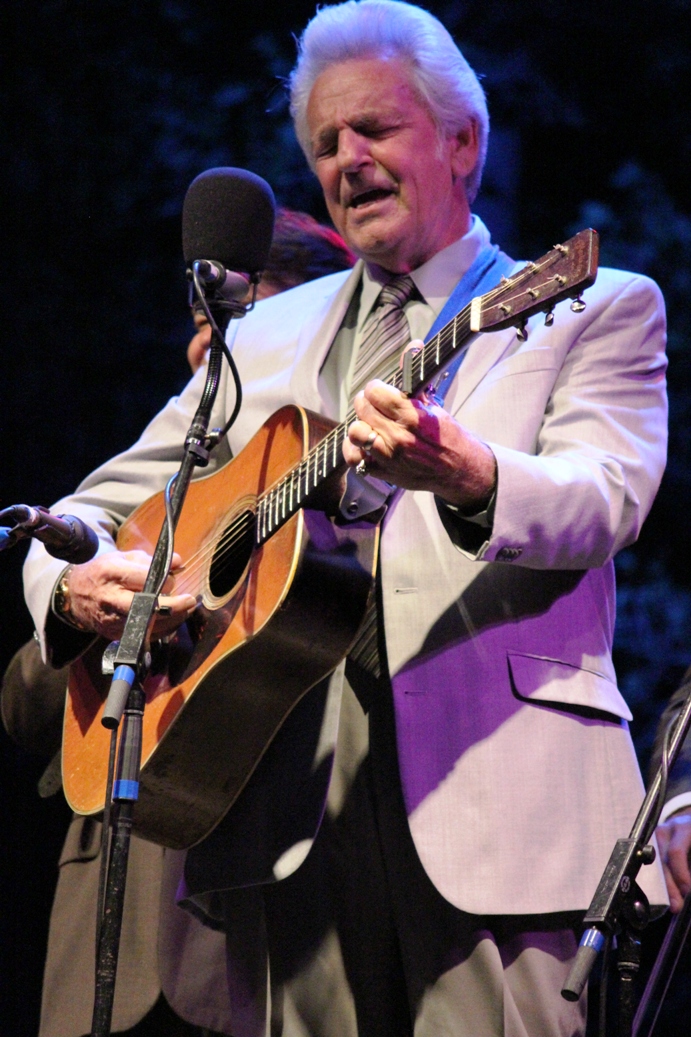
I’ve toured with [Gill] quite a bit and asked him “Why did you go into country?” And he said “Well I wanted to buy a house!” [Laughs] I said “You can buy more than one house now can’t you?” This is funny though he said now he’s going out on tour with a bluegrass band. He’s got some of the great bluegrass musicians to go with him and do this. One time we booked a tour together, of course he had his own band and he wanted me and my band to go. We’d go out onstage and do a lot of things together. That’s been ten years now maybe.
I also enjoy all sorts of other music such as jazz, you know. I’ll tell you, when I first started hearing Bill Monroe, or was interested in bluegrass which was in 1950. When I first heard Earl Scruggs, I never thought about bluegrass musicians being influenced by other kinds of music at all. But they were. Like Dixieland, Scruggs recorded those songs on five-string banjo. Bill Monroe played with an old guy that always used to come up from New Orleans each summer, and they’d play around Kentucky. And then in the following year he would get on a ship and go back to New Orleans. I didn’t realize this when I was a kid, but [Monroe] was very influenced by jazz. Of course now I can hear it when I hear a mandolin break I can hear the jazz in there. Really all music is interrelated somehow. Its not its own thing, its just a combination of a whole bunch of things. Bill Monroe told me one time, “I learn from musicians but they don’t know it.” Of course when he was playing whatever he learned from other musicians it was in disguise. You didn’t know if he learned it from a jazz guy or a country hot-picker or something like that. [Laughs]
GW: Absolutely, there are so many interjections between jazz and bluegrass. Could we talk about your DelFest Academy, that special element of Del Fest?
Del: My sons and the band. My son Ronnie teaches mandolin, Rob teaches banjo, Jason Carter my fiddle player teaches fiddle, Alan Barkum teaches bass, and Ronnie Bowman goes and teaches guitar. He’s a great singer/songwriter in this town here. He’s written some great songs for some of the big country guys, Kenny Chesney and Brooks & Dunn. But his training is in bluegrass. He’s a good guitar player and a great singer. One time Dunn said “I was kind of intimidated by the guy that sung that demo. He’s so good. I’m kind of resistant singing that song since that guy is so good.” And he was talking about Ronnie Bowman.
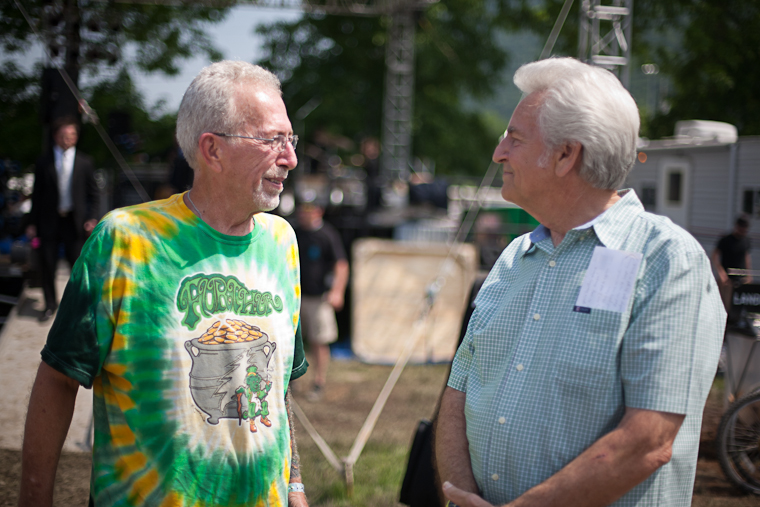
But he teaches guitar, and I’m glad because I don’t have to do that. I don’t play lead guitar, and that’s what these kids need. They need to hear a guitar play lead. I just accompany the band, and play rhythm and runs. That’s what I heard when I was growing up. I heard Lester Flatt, that’s what he did and later Jimmy Martin. That was their task in those days in a bluegrass band. And years later on, we started getting these lead guitar players, and it’s a hot thing today in bluegrass. And I like to hear it. My favorite is Tony Rice, I like to hear what he does.
When I moved to California, and was playing on a T.V. show out there, there was a little radio show in Norwalk, a suburb of LA. I went in and this man and his two sons were there. His little son was Tony Rice playing guitar. He was probably ten or eleven years old, he wasn’t too good. But the next time I saw him he was playing in this band out in Michigan and man he was really great by that time. He’s recorded some good stuff through the years. He’s my favorite lead guitar player.
GW: Do you do anything in the Academy involving your vocals?
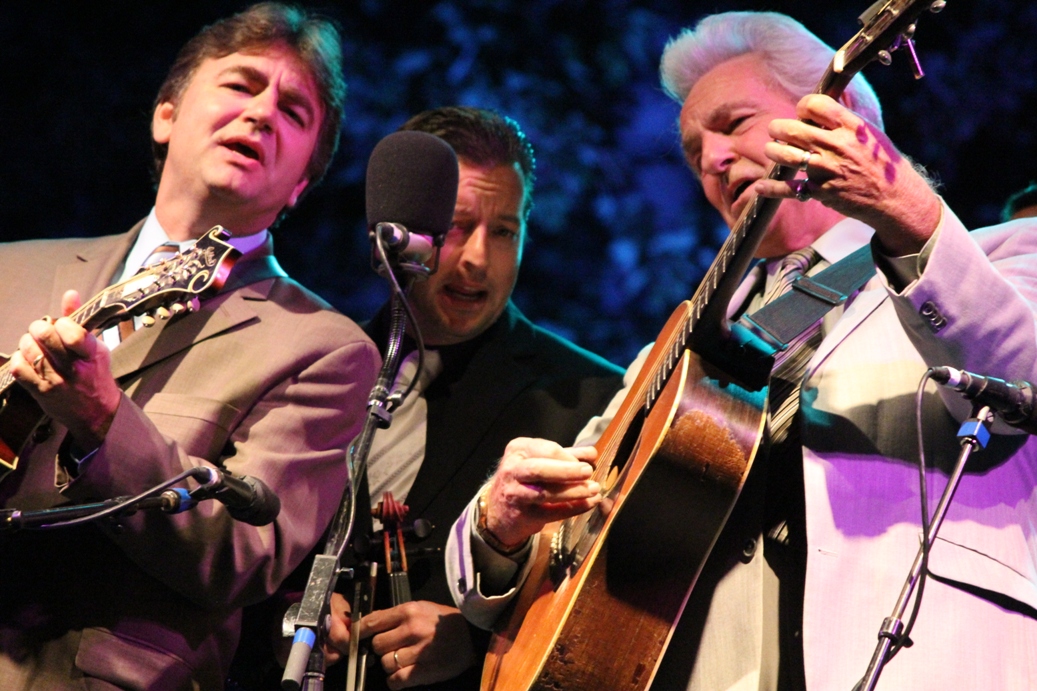
Del: No, my sons and nephews in the academy sing. I’m up there all week but I have lots of other stuff going on, but on Thursday I’ll go in there at the end and the musicians and participants with get to play one-by-one with my band. And just play on whatever it is that they want to do. So they do get to play with me a bit.
GW: It sounds like such a unique festival experience. I wanted to tell you Mr. McCoury that it’s truly been an honor to have you join Grateful Web for this conversation. You’re one of my hero’s in music. I wanted to highly encourage our readers to attend DelFest, which is approaching its fifth year in Cumberland, Maryland at the Allegany Country Fairgrounds, held from May 24th through May 27th over this Memorial Day weekend. In the meanwhile I look forward to seeing you perform at Telluride Bluegrass.
Del: Hey I want to meet you when we come together again!
GW: That would be an honor!





